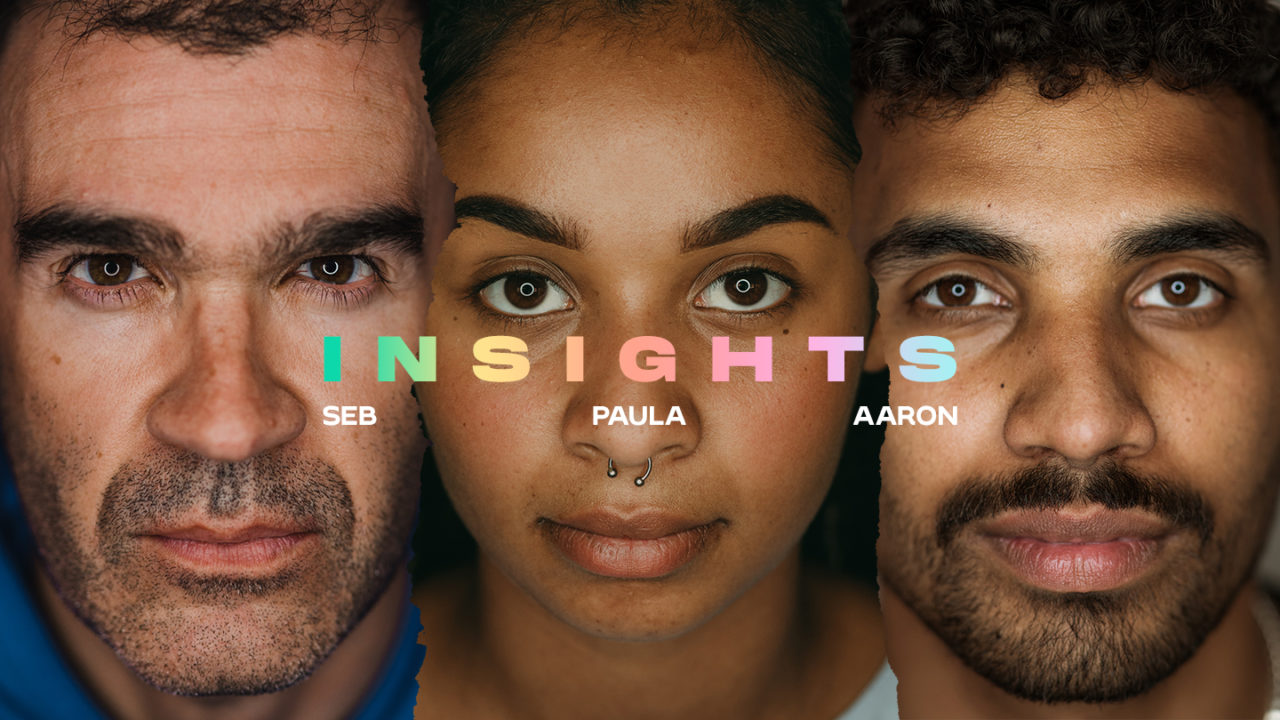The past months have shown us the importance of re-thinking and re-evaluating the way we engage with each other and what roles our individual lives play on a broader scale. Our new project, titled ‘Insights’, explores our foundation of community. In an ongoing interview series, we want to sit down with our members, give them a platform to speak, and listen to their stories. As we understand this project not only as an interview series, but a dialogue with the Berlin running community, the importance of listening to one another and keeping the conversation going is a process that we intend to deal with in a transparent manner. Listening in this context also means taking action when critique is being voiced. This is why we have decided to step away from using the term “urban running.”
While our goal has always been to bring people together, we feel like it is overdue to also address how our community lives different experiences based on their subjective histories. ‘Insights’ is a first step towards embracing these different life-realities and highlight how they collectively form the Braves. This is the third round of members that we have sat down with to listen to them.
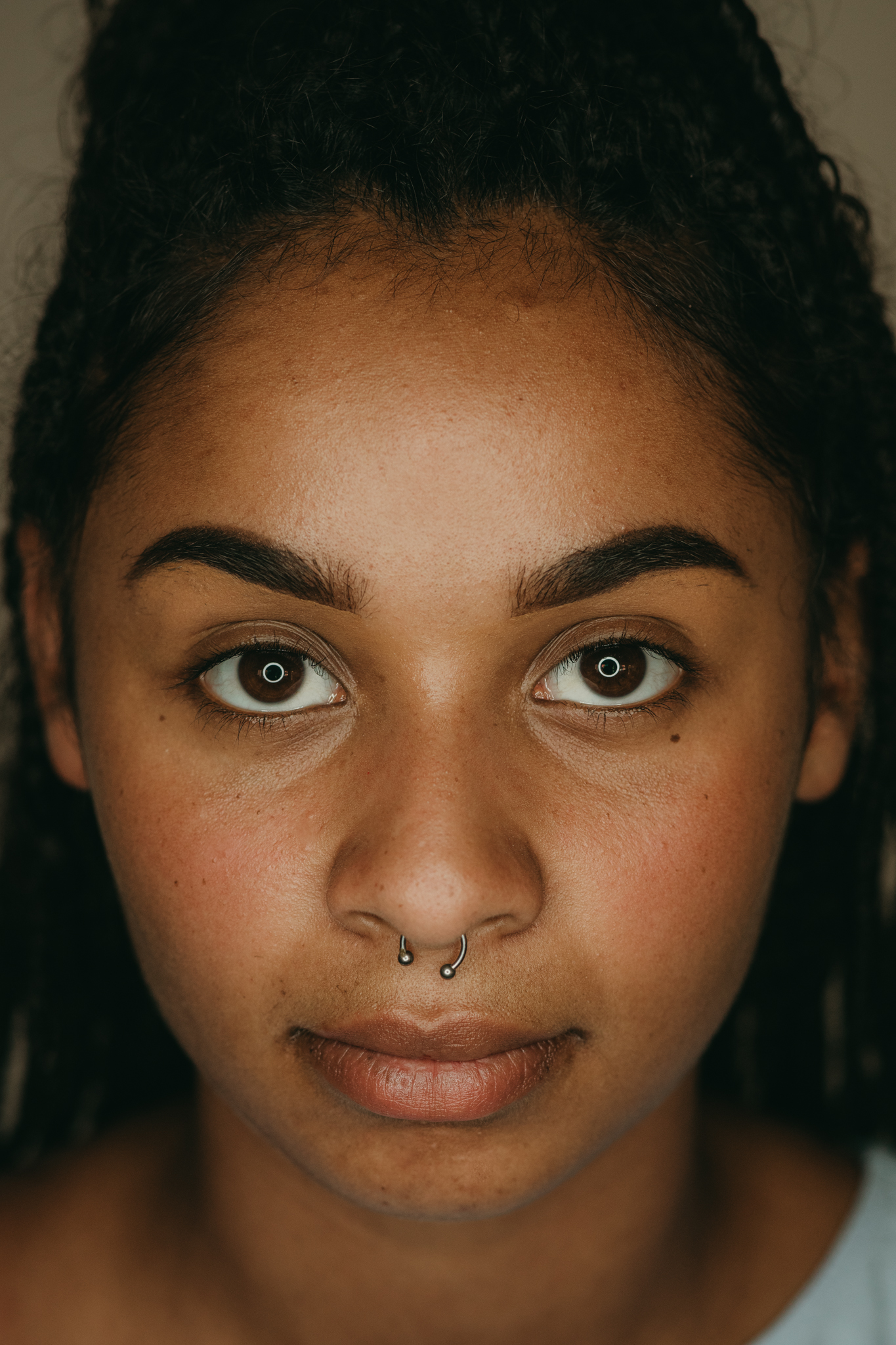
Who are you? What is Berlin for you? Hometown? The City of Choice?
Paula: I’m Paula, I’m 21 years old, I was born and raised in Berlin. As I’ve never lived in another city, Berlin is my one and only home. My family lives in London, so I really enjoy spending time there, but Berlin is the city that I love, know best and that best matches my personal values. Open-mindedness is one of these values.
Seb: I am Seb. Berlin is not my hometown and also not really my city of choice. Berlin is my place of residence. I met a girl from Berlin in Paris in 2002 and decided to leave my friends, my family, my job to have an adventure in Berlin. Adventure was a state of mind when I left Paris for Berlin. It was a leap into the unknown. Today it is quite different. I’m still living in Berlin because my kids were born here and I want to play an active role in their life and education.
Aaron: I’m Aaron, I was born and raised in Berlin. I’ve lived here all my life and have more or less always lived in the same house. Berlin is my first choice and I want to continue living here.
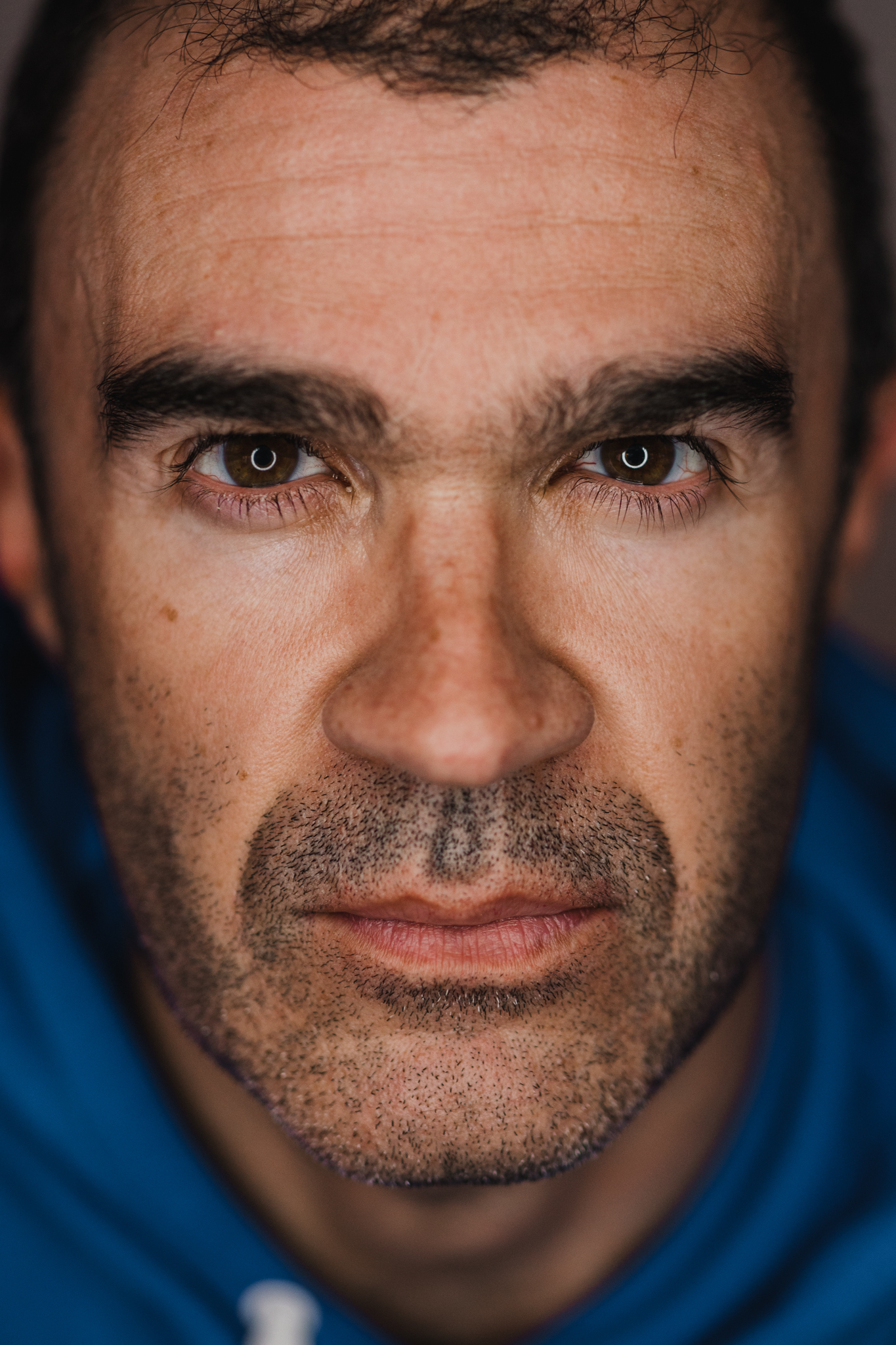
How has living in Berlin impacted your self-understanding?
Aaron: Berlin strongly influenced the way I see myself. There are so many different people in Berlin, and there is this mentality that everyone can be what they want, and do what they feel like doing. I never felt limited, like I couldn’t do what I wanted, or that someone judged me for doing things they didn’t like. I do my best not to judge people and try to engage with people in the same way that I wish that people would meet me – without prejudice.
Seb: I am a French guy and living in Berlin caused me to get acquainted with a new way of seeing people and my environment. In the first years of being here I tried to integrate myself as much as possible. I even tried to stay away from other French people to really get into the German way of living. It was a new life. I am speaking German now which sometimes feels as though I am playing a role – that I am not really myself. When I speak French I am completely different in terms of my character. It’s almost like having two faces. The language is a big part of it, but it’s also the people.
We used to say there’s a lot of common ground between French and German people, but sometimes I feel like we are very different, and it’s hard to maneuver in certain situations, and be diplomatic in order not to offend people based on the cultural differences that exist. I have become very diplomatic living here, but also wiser. I handle conflicts differently, because I have become more aware of the fact that socialization plays a huge role in the way people approach situations.
Paula: I believe that there is a common misconception in big cities where people think just because they grew up in a big city that they are automatically open-minded, and have a profound knowledge of different cultures, diversity and everything that happens around them. I think it is important that when you come from a big city like Berlin that you keep in mind that you actually have no clue – open-mindedness is a journey, a process that you have to actively embrace in order to continue developing this value.
When it comes to my own open-mindedness, I have to say I’ve come a long way, which is shocking in retrospect. I also had the impression that just because I grew up in a big city, I’m automatically open-minded. But that’s obviously a misconception. The BLM movement taught me a lot in particular. I realized that listening is actually more important than always adding your two cents to the conversation. I used to think that I had to actively engage in a conversation to appear attentive – that I had to bring something to the table. Over time I’ve learned that sometimes you have to keep your mouth shut and just try to understand the other person. The debate about colorism also showed me that I should be in the position of the listener more, and I think that you can reflect this understanding onto many other areas of life.
I think growing up in Berlin reminds you that you are small. Everything is constantly changing – the mindsets and also your own understanding of things, diversity, etc. That is why my self-understanding is always oscillating and changing due to the constant change in Berlin.
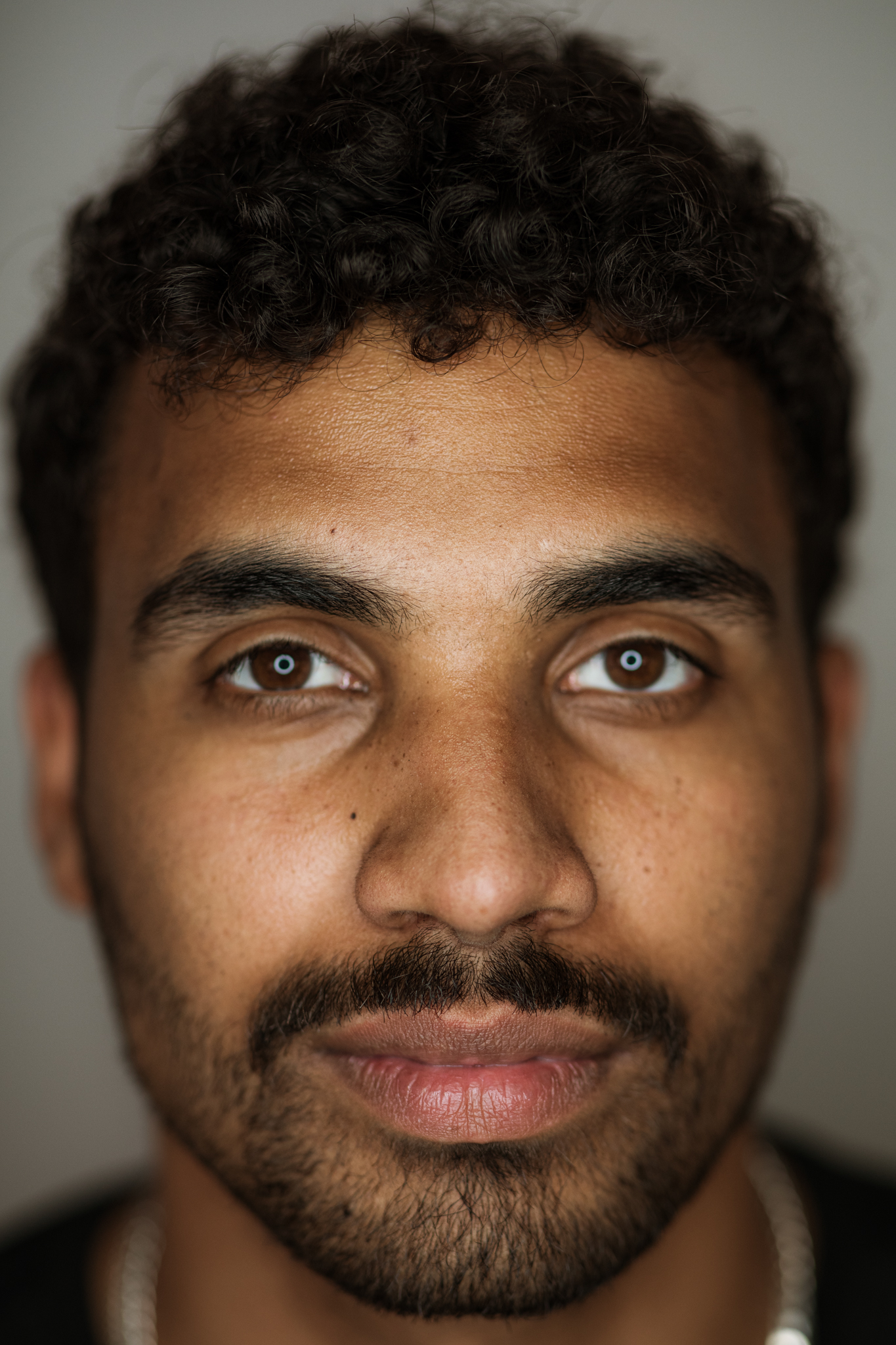
Do you perceive yourself differently in varying locations? If so, how?
Aaron: Definitely. That’s even the case when I move around different parts of Berlin. In Kreuzberg I’m one of many people with a mixed background, in Wilmersdorf it’s a different story. When I’m in Cuba, I see myself as a German, while in Germany I see myself as a Cuban.
Seb: I feel very different depending on where I am. Even though I have been living in Berlin for 17 years, it still doesn’t feel like home – I still feel like a foreigner. I definitely feel more comfortable in Paris than in Berlin, which is due to the language but also the culture. I am very much influenced by French culture and although I have been living in a different cultural environment for 17 years, I am very aware of that.
When I came to Berlin I was told that Berlin is very multicultural. But I grew up in a multicultural society and I don’t even feel like I live in a multicultural city here. After all these years I can understand that for many Germans Berlin is very multicultural, but if you compare it to Paris and the suburbs, then it’s a completely different form of multiculturalism. When I think back to my first years in Berlin, whenever I met a Black person on the street it made me feel at home, but those moments were very rare.
Paula: There are two major factors that play a role – on the one hand it’s language, and on the other hand a connectedness to the culture that you come from. It is a fact that when you speak different languages different facets of your personality surface. When I’m in London, I morph into the language – I’m cuter, I don’t have a “Berliner Schnauze”. But that’s ironic, because when I get to know people in other cities, I am frequently told that I come across as very German. Not because of my accent, but because of my way of expression. I find it pretty funny, because I am trying to tone it down already, but they still see the German in me – I can’t hide the German in me.
As a result, I perceive myself differently. This is particularly strong in London. I attended the Notting Hill Carnival for the past few years. Being there always overwhelmed me in a positive way – there is so much Black culture and a lot of it unfortunately remains inaccessible for me because I grew up here with my white mother. When I’m in London, I always try to embrace the Caribbean-Barbadian vibe and walk this road because I have the feeling that I don’t really have that connection in Berlin.
What’s your definition of community?
Seb: Being together and making time for each other. Helping each other.
Paula: Community consists of a group of people that support each other and help each other which means that they have a shared moral responsibility. This moral responsibility creates a common consciousness and from this consciousness collective action arises. Collective action and this collective morality is necessary to further create and maintain the community. Rituals and myths characterize communities. If you relate that to the Braves, then running, for example, is a ritual and a myth could be understood as the stories people tell about their last half marathon.
Aaron: Community is a group of people that comes together for a specific reason – it can be sports or cultural origin, for example. There is definitely one factor that unites them all, and beyond that the community grows into other spheres that are not necessarily related to the reason that caused the initial gathering.
What’s the Power of Community?
Aaron: Collective empowerment.
Paula: Support and stability. I believe that communities exist so that individuals feel self-assured. The individuals in a community are a means to reinforce self-positive assurance. Therefore, the power of community is that it can give you support and stability. This, in turn, empowers the individuals that make up the community. I think there is a lack of community in our society. We are brought up with this mentality that everything needs to constantly get better, faster, stronger. That everyone has to go their own way, find their own creative niche. I believe that a lot of self-definition depends on consciously separating yourself from groups to exert your right as an individual being.
Seb: Bringing people together. Making people happier.
How do you perceive your role within communities?
Aaron: The role that I take on in a community is ever-changing. It has to do with how well I know the people and how well I know my way around. My role then adapts accordingly. Sometimes I am a vocal leader and in other cases I am a listener participating from a passive position. It also depends on my strengths and interests and whether I can make an active contribution. Sometimes it’s better to learn something by simply listening to the perspectives of others.
Paula: It depends on the people. When I’m in a community of mostly white people, then I try to slip into a strong Black independent role. I am often someone who says something and I have noticed that when I am surrounded by my close friends, I do not have the feeling that I have to perform this socially imposed role of the “strong independent woman,” but can withdraw from it. Around my friends I don’t have the need to be a strong woman because I know that our world views are aligned. My self-perception is definitely dependent on how “woke” the people around me are. The less “woke” people are, the more I feel the urge to be vocal.
Seb: I try to play an active part. At times it’s hard to consistently be active in different communities. In the Braves community I take on a lot of responsibility and try be the motivator. I am also committed to the French community in Berlin. I started a sports group within the French embassy to bring people together outside of work. Right now I’m trying to bring the Berlin-based community from La Reunion together. There is a small association, Reunion der Kulturen. We are a couple of people from the island trying to bring the community to life, so to speak. As I said, I still feel like a foreigner and have the feeling that I can represent so many different communities and would like to do so.
It also has to do with the fact that there are so many different parts of me. There’s this Creole culture by which I am very strongly influenced, but also the Jewish culture to which I also belong.
What kind of people would you like to surround yourself with?
Paula: All kinds of people, preferably as different as possible. I also want to surround myself with people who don’t share my opinion. The best discussions are often with people with whom you can’t even find a common denominator.
Seb: Nice people. Honest people. Honesty is essential. People you can really count on.
Aaron: It depends on my mood and my goals. I’m mainly concerned with the social aspect, the personal level. How you interact with each other and the range of topics that you can talk about.
I believe that everyone can and should have their own opinion. Just because there are disagreements doesn’t mean that I don’t want to have anything to do with the person. Of course you draw your conclusions from such differences, but I think you have to be able to differentiate. You also need to understand why different people have different views.
How can your role in a community be improved? How can you create self-improvement through community?
Seb: Within a community I would like to be the person who gives, who passes on knowledge and transmits experience. It is difficult to describe my role within the Braves because there is a difference between how I see my role and how others see it. I’m a co-captain and I expect others to be as active as I am, apart from my role. I see myself as part of the community and not necessarily as a leader. I like to take responsibility. Dialogue, discussions, and evaluations can lead to self-improvement. I think exchanging ideas and spending more time with each other is crucial to improvement.
Paula: I think the heart of the matter is to have a dialogue, to listen to people. You can learn so much from each other. There are so many people within the Braves who have such different experiences. I believe that there is a collective exchange of experiences. You learn from your own experiences, but having access to the experiences of others then increases the learning process. When I joined the Braves, there were a lot of people of color. For me, that was the first space I noticed there is so much more to Berlin than this white German thing. That’s why the Braves always had this political component for me. It was a space in which I could develop myself further.
Aaron: I’m an introvert and often keep things to myself. Usually, I only express myself when I am fully convinced. Even if I’m not an expert on the subject, I wish to be more involved.
Through community I can learn to be more extroverted and to show more of myself. I hope to learn to approach people more, to take the first step. The impulse should also come from me. I don’t always have to wait for people to come up to me.
What needs to change in our community? How can you bring about change in our community?
Paula: I think the vibe has changed a bit. In the beginning it was really about the challenge of running for me. The performance aspect was really strong and also the experience of having a whole community rooting for you to exceed your personal limits.
Right now, I miss the sense of togetherness a bit and feel like the performance aspect has taken over the vibe. That obviously has to do with the circumstance of the pandemic. I think if we all saw each other again, everything would be different. But of course you can’t host such sick events during corona, but that would probably be the key to everything. I think it would be good to create more spaces in which dialogue can strengthen the vibe of the community. I see the weekly social runs as the perfect occasion to introduce a new focus on dialogue. During the last Homies Half I hosted a little event called Braves Olympics. If I were to take initiative like that again, I would make sure to dedicate some time to get the conversation going.
Aaron: I know a lot of the basketball Braves and don’t have that much to do with the other Braves. So it would actually be nice to connect the sub-communities even more. That also coincides with my personal goal to be a bit more extroverted and to approach people more.
Seb: I’m very satisfied with our Braves Community overall. But there is a lot to improve within the Berlin running community. We have never been as apart as we are at the moment. I think that’s sad and it’s a shame that we don’t work together as much. I can understand that each group has its own opinion, but at the end of the day we are all human beings. We’re all runners. We have a common passion and I think we should unite more based on this common ground. I think there is too much pigeonhole thinking within the Berlin running community. As soon as you don’t fit into a box you are excluded.
I feel very comfortable and welcome with the Braves. From the beginning, it was an international group. A lot of different people met each other. There were no boxes. For me, the Braves Community is a safe space – the most inclusive running crew in Berlin. But I also understand that some people feel more comfortable in closed communities, which is why it is difficult to resolve these differences in Berlin.
I think I can bring about change by initiating more get-togethers in order for us all to reconnect. I would like to promote joint trips and projects for the team in order to strengthen the community. Next year I would like to do more small projects to stimulate exchange. Both within our community and with the global running community.
What would you like to be recognized for?
Paula: The things I stand for are social issues that exceed the life-realities of one individual. I work in a political association that deals with the advocacy of basic human rights on the internet. One thing that I learned and understood is that personally, as an individual, I don’t want to be recognized for anything specific. The issues that I wanna address are so fundamental to society, that the only way out is to recognize a whole group or society for something. The outcome of what I expect from our society goes beyond the individual and that’s why I don’t need to be recognized for anything.
Aaron: Not my appearance, but my personality. I want to make a lasting impact and create a legacy that will outlive my lifetime. I would like to work with renewable energies and I would try to create something that makes the world a better place.
Seb: I want to be seen as a playmaker. I don’t want to be in the spotlight. I don’t want to be on a pedestal. This isn’t for me. I want to be recognized for taking my role in communities seriously. I hope that people see that I am on their side, that I am rooting for them, that I am trying to support them to reach their individual potentials. Making people happy makes me happy.
How would you like to use your voice?
Seb: I’m a very introverted person, but sometimes I get the feeling that people expect me to use my voice. If I can change something or help people, then I love to do so. “In Your Shoes” was a project that was very important to me because it exemplified the international connectedness of the running community. It was much bigger than just the Berlin running community. There were moments when I should have used my voice, but didn’t. I sometimes don’t know how my voice resonates as I have a different perspective on things. I was socialized in France and live in Germany. Because of this, I am cautious about some issues and probably too cautious at times.
As I am never fully part of a community, I sometimes find it difficult to use my voice. Sometimes I simply don’t feel like I’m in a position to do so. I am half Jewish, half Creole, which also means that I am not considered a full member of either community. I’m also part Turkish, but then again not Turkish enough to speak for the Turkish community. Because of these circumstances I sometimes feel that it is not my right to speak up. But I think it is a misconception and that I should in fact use my voice more. I have to work on that myself.
Paula: For empowerment. I want to use my voice to amplify other voices. My impression is that society is not listening to Black female voices enough. Obviously, the BLM movement has been a momentum that empowered the Black community as a whole. I want to focus on the female experience of being Black with special regard to the context of my university.
Aaron: I want to speak out more against things, that I feel are not right. In retrospect, I sometimes wonder why I didn’t say anything while witnessing situations in which someone was mistreating someone else. I often stay out of other people’s business. Still, I think I should get involved more often and be less distant. Over time, I realized that when I voice my viewpoints other people appreciate it and listen to what I have to say. I noticed that people value my opinion. That’s cool, but unfamiliar and in that sense a little uncomfortable.
How are you planning to use your voice to bring about change and empower others and yourself?
Seb: For me it is important to initiate more dialogue. When BLM was very present on social media, I found it difficult to differentiate between trend and reality. I was unsure whether the people affected by anti-Black racism would consider my expression of solidarity as performative. I think it is important that we respond more to our individual life-realities and note that we are all affected by different forms of marginalization. In this sense we should pay more attention to each other and show that if there is a need to speak, there’s a whole community to talk to. I would like to use my voice to show not only running connects our community. It’s about real life experiences.
Aaron: I always try to persuade my friends to acquire more knowledge and to broaden their horizons. I think it’s important to try to understand other people and not just devalue their opinion because it is different from your own.
I have learned from my own experience that when you deal with things intensively, good things often emerge. What you have learned in certain situations can then be transferred to other areas of life and thereby you develop further. I think it’s important that you don’t stagnate in life, but keep moving and developing.
Paula: I would like to start at my university. I’m studying at the University of the Arts and a campaign called “Exit Racism UdK” (https://exitracismudk.wordpress.com/) was recently launched. It made me realize that experiencing structural racism is so communal within my environment and made me want to join the campaign in order to fight it. A communication project is the sole focus of my upcoming semester. We can either come up with something new or further develop an existing project. I think that is going to be a great opportunity for me and the group I am working with to get politically involved. My group consists of very like-minded people and I’m really looking forward to working with them and sharing ideas.
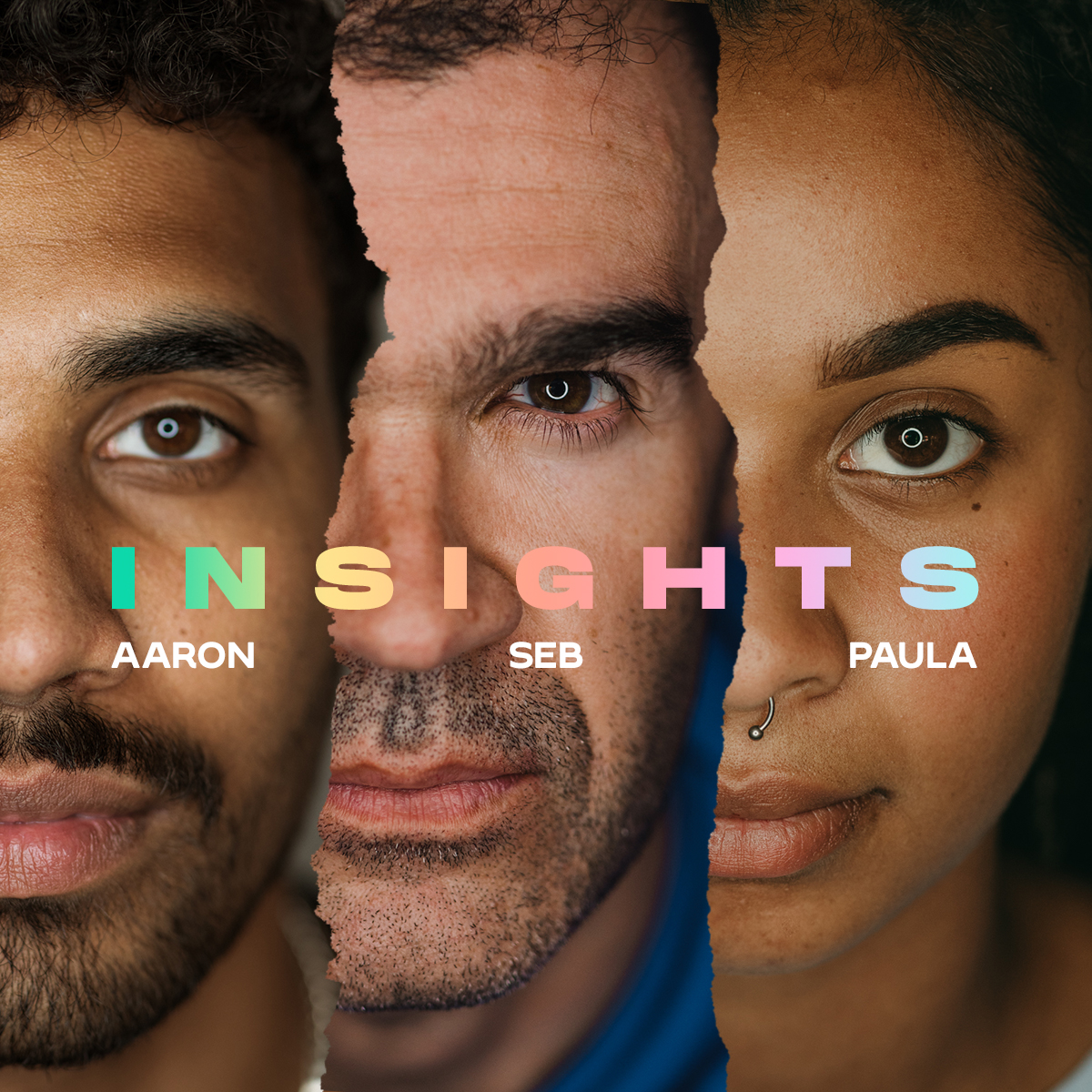
Whom / what community would you like to uplift?
Aaron: I want humankind to be more unified – that different groups are more responsive and open to each other. I think that there is a lack of collective awareness of the future which causes this lack of unity. When it comes to world views, I have the impression that people rather stick with the patterns that they are acquainted with instead of learning about other perspectives. I think people have a hard time getting out of their comfort zone, because it requires them to break through their pre-established mode of viewing the world, especially when it means integrating new perspectives that are not aligned with their own beliefs. It is important to question your own worldview all the time.
Paula: Within my immediate social circle it’s the people of color at university. Generally, I want to uplift communities that have existed in certain structures for a long time but have not yet been given enough space allowing for their voices to be heard.
Seb: Whatever community that needs someone to stand up for them. I think there are so many communities that are invisible and I would like to support them. Personally, I find it important to understand that you can build a culture from many different cultures and backgrounds, culture comes to life through inclusion and recognition of differences.
